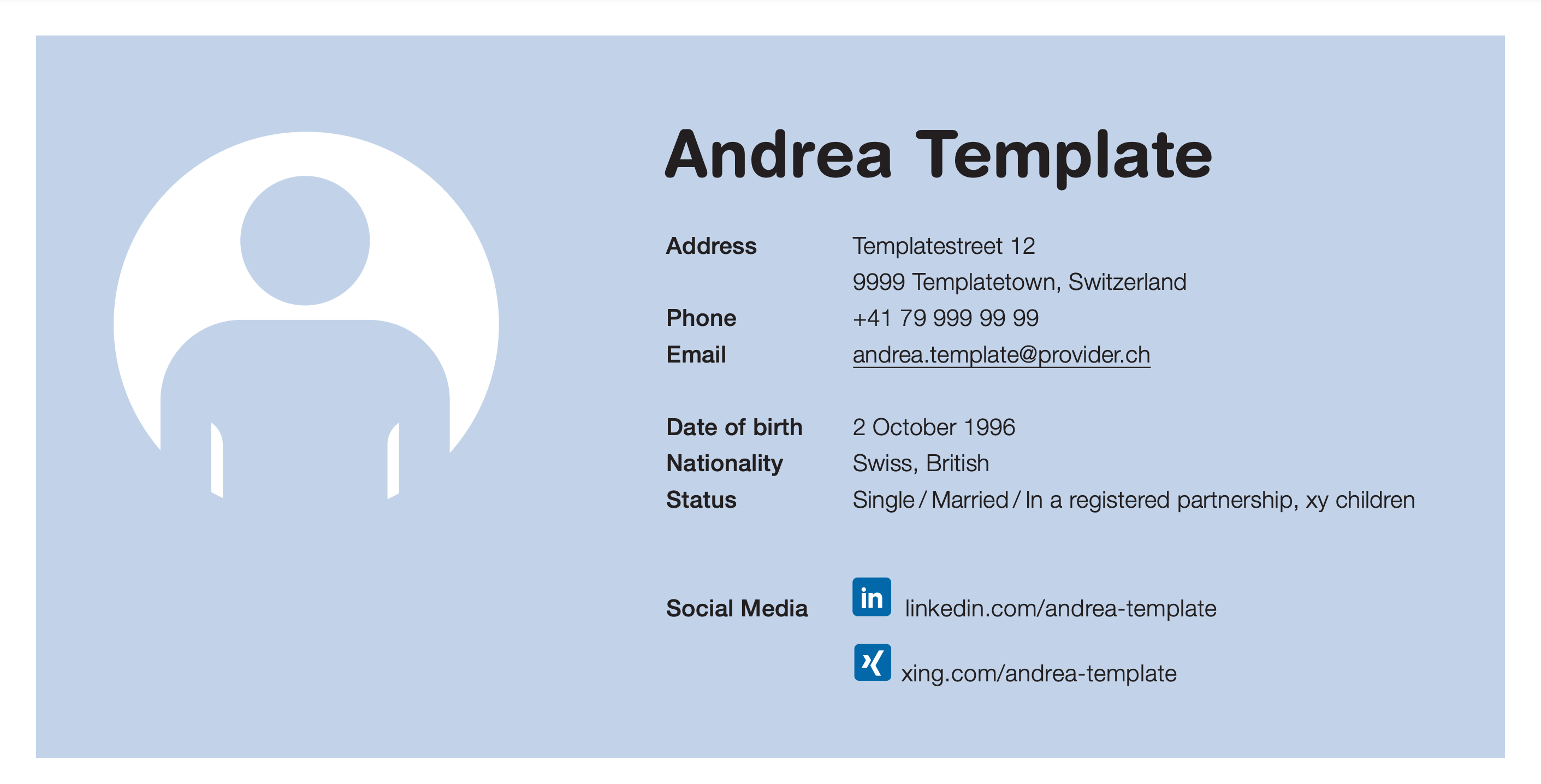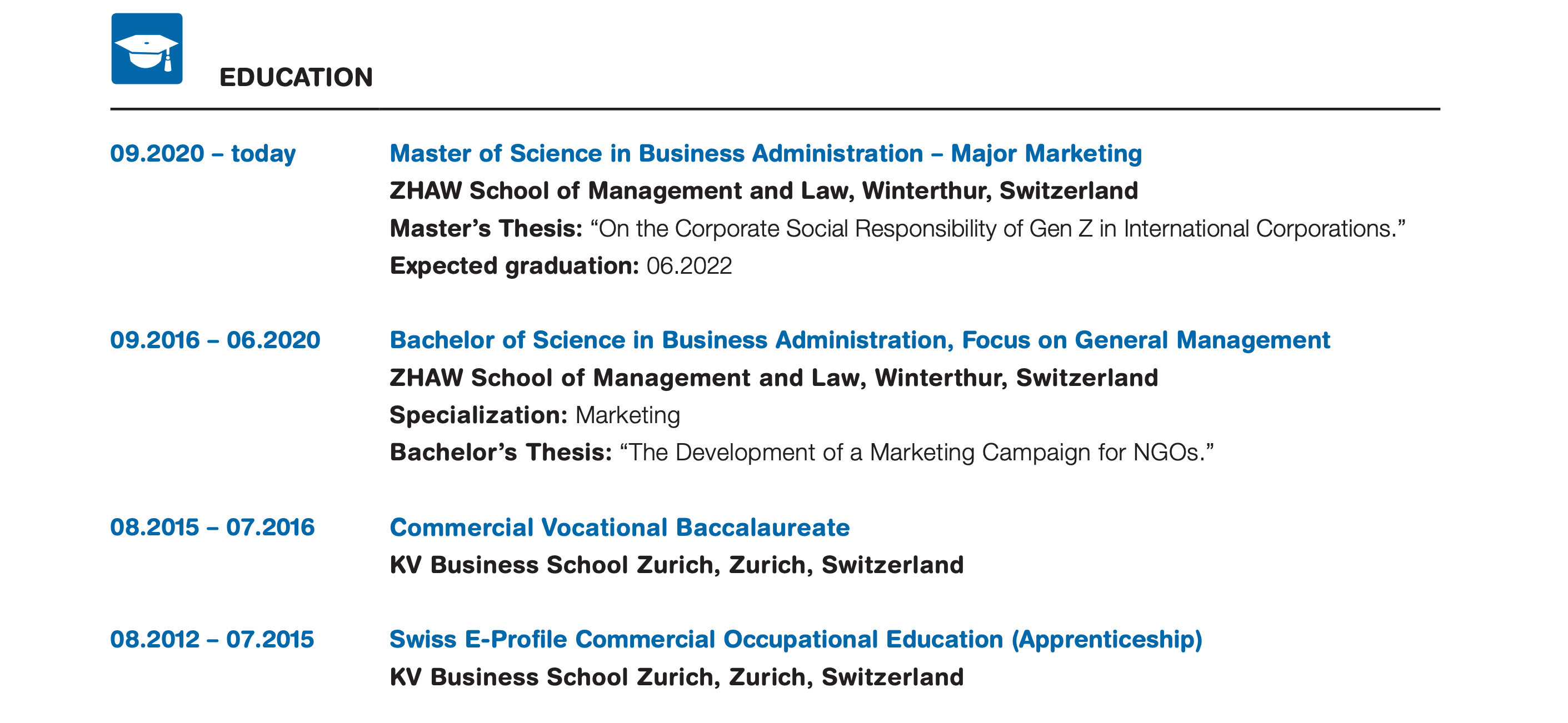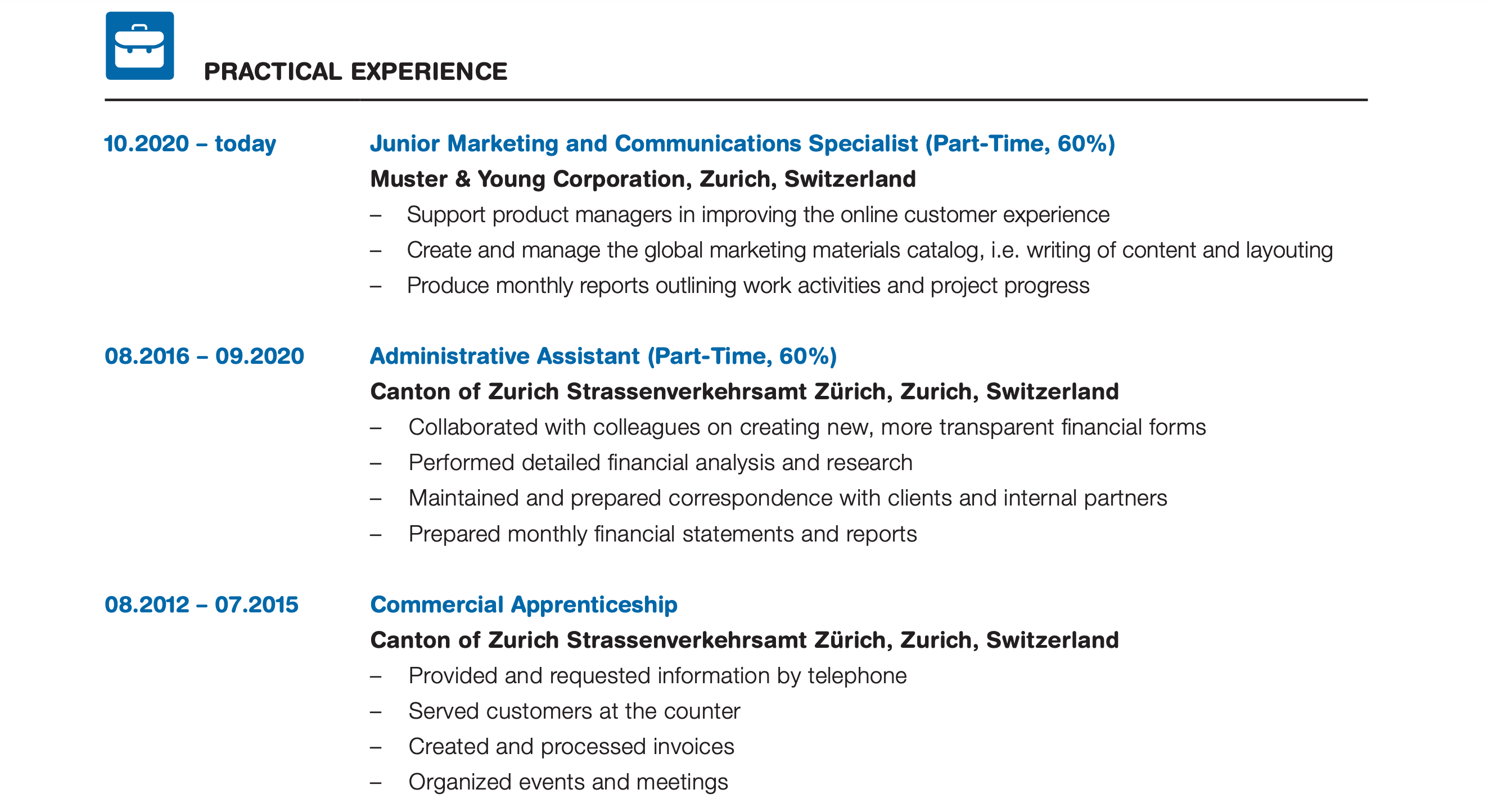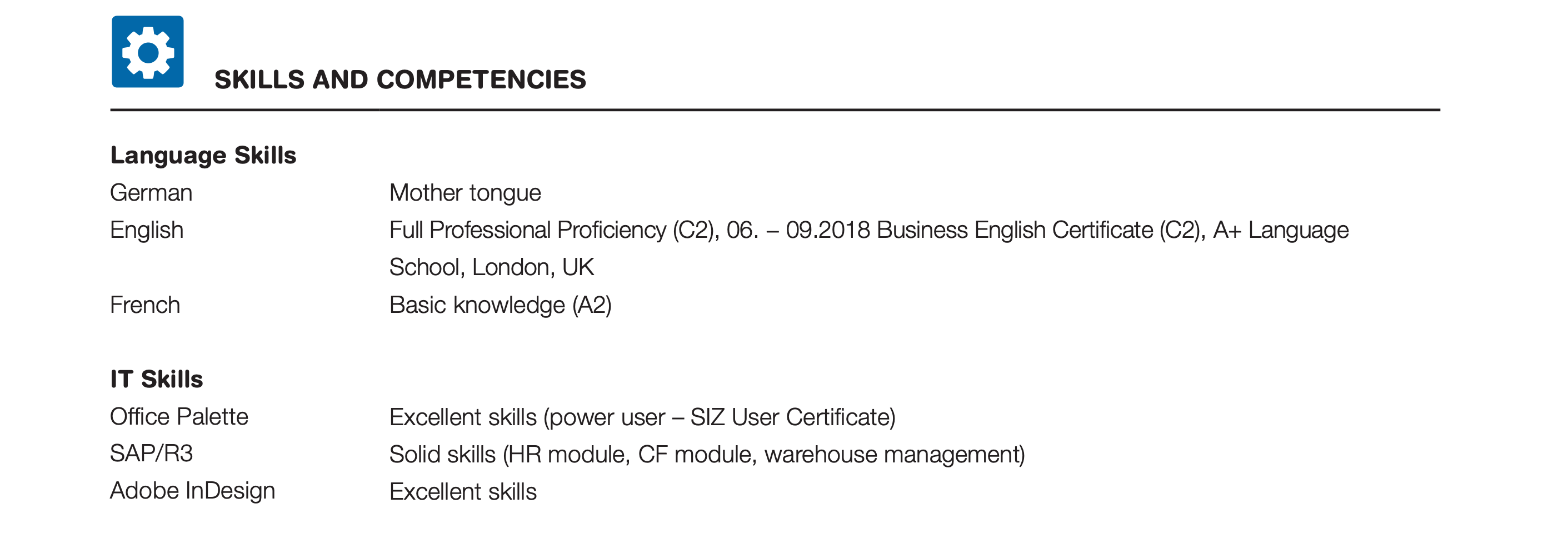The goal of a CV is to show what your career has been. Therefore, your CV must always be individual and unique. Keep in mind that recruiters take between 30 seconds and a maximum of three minutes to review your CV. This means that the recruiter should see very quickly whether your experience and qualifications are relevant to the position and company you are applying for. In the following, we will show you how to build your CV and what is essential in this context; we will also give you examples of phrases to use. At the bottom of the page, you will find CV examples. Ideally, you should choose your own formatting to give your CV a personal appearance. If you still have questions, sign up for one of our services. We offer personal CV checks and CV workshops.
SML Career Services – CV Check
Your CV must be convincing if you want the other documents (letter of motivation, training references, job references, etc.) to be read. Therefore, we recommend the following for your CV:
Here you will find examples of CVs. We recommend choosing your own formatting to give your CV an individual look.
Example for use in Switzerland, Germany, and Austria.

A photo on a CV is not mandatory in Switzerland, however it is commonly used. We recommend adding a photo to your CV.


bad examples


A short profile is optional. If you decide to add one, make sure it is a summary about you concerning the job and the company. Write a maximum of three to four sentences. A short profile should also…

List the schools and programs you have attended.

Here you can list your previous practical experience from your jobs, internships, part-time jobs, student jobs, volunteer work, etc.


In keeping with the chronology of your CV, military service can be listed in a separate section.

IT skills are simply listed or grouped by topic (e.g., operating systems, graphics programs, application software, etc.). As with your language skills, you can self-assess your user level.


Unless expressly requested, the people providing references are not mentioned by name in a CV. Bring references along to job interviews or submit them later upon request. We recommend writing: “Available on request.”

Action verbs are expressive, active verbs that are the icing on the cake of your CV and cover letter. They describe your experience and activities more specifically and create a dynamic, committed, and lively impression.
Whether you have taken time off voluntarily, taken a break from your studies to travel, lost a job, or suffered from a prolonged illness – gaps in a CV are not unusual. Job seekers without a straightforward CV often fear that they will be rejected, if not based on their CV, then at least during the job interview. It is crucial to present yourself in the best possible light when applying for a job. Generally, gaps in a CV are nothing to worry about. After all, there may have been positive experiences gained or valuable lessons learned during the gap period that may prove helpful professionally.
Some application processes can take up to six months, so anything between one and three months is not a real gap. For example, if the job search lasts longer than six months, you can write “looking for work” to explain the gap in your CV. The important thing is not to hide anything or even lie but to state with confidence what happened.